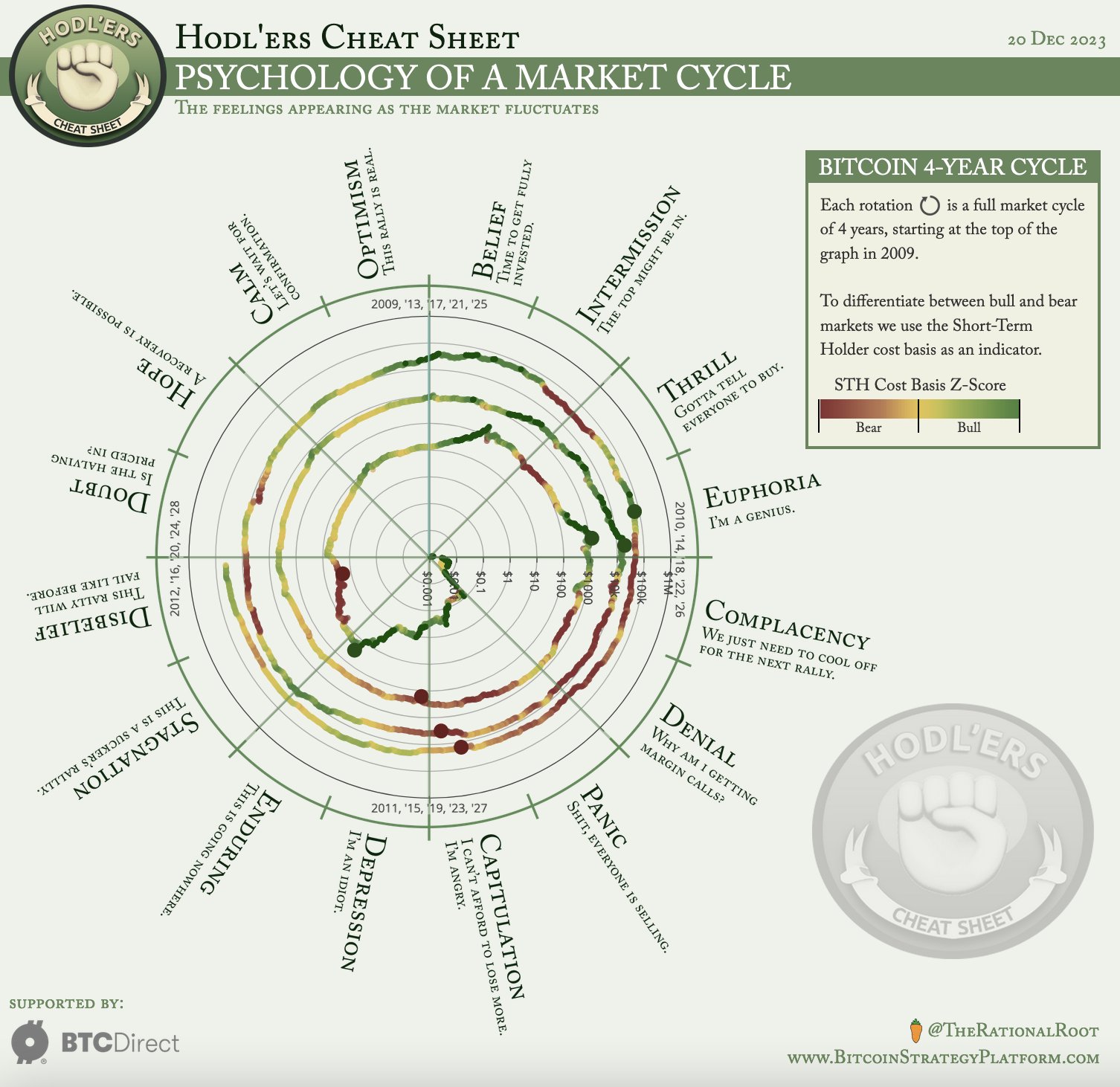A Bitcoin cycle analyst has revealed a “cheat sheet” for the cryptocurrency’s price based on the data of an on-chain indicator.
Bitcoin 4-Year Cycles Have Followed An Interesting Pattern
In a new post on X, cycle analyst Root has shared a Bitcoin chart that breaks down the phases that the cryptocurrency’s price has gone through over the different 4-year cycles.
In order to separate between bullish and bearish periods, the analyst has made use of an on-chain indicator called the “short-term holder cost basis.” Now, what do these terms mean?
First, the short-term holders (STHs) refer to the fickle-minded side of the BTC market who buy and sell often. Typically, the investors who bought within the last six months are included in this cohort.
The cost basis (also called the “realized price“), the other metric of interest here, is the average price at which the entire market or a particular segment of it acquired their coins.
This means that if the spot price of the asset dips under this value, the average investor in the cohort could be imagined to have dipped into losses. Similarly, a break above the cost basis suggests the holders as a whole have just returned into a state of profit.
Now, here is the chart shared by Root that breaks down the “cheat sheet” for Bitcoin based on the cost basis of the STHs:
Note that the Z-score of the STH cost basis is used here, which is just a measurement of how far away the indicator’s value is from its mean. The “bull market” occurs at green values of the metric, while “bear market” occurs at red values.
Interestingly, it would appear that besides the first few years of the cryptocurrency’s existence, the peaks of the bull markets and the bottoms of the bear markets have occurred quite close to each other.
The tops, represented by the green dots, have occurred during “euphoria,” the phase of the market where the STH cost basis rises substantially above the mean. Such an increase in the metric suggests that these investors have been participating in a large amount of buying at the high bull run price levels.
Similarly, bottoms (the red dots) have taken place during the capitulation phase, where the STHs sell their coins at high losses, which are promptly picked up by more resolute hands at the low bear market prices, thus pushing the cost basis considerably under the mean.
From the chart, it’s visible that at present, Bitcoin is currently inside the “disbelief” phase, where the investors aren’t quite yet ready to believe the current rally has hopes of continuing for long.
If the pattern followed in the previous cycles is anything to go by, there is still a while before the BTC bull run kicks off properly for the current cycle, the top of which might form sometime in 2025.
BTC Price
Bitcoin has now recovered back above the $44,000 mark after going through an uplift of almost 3% in the last 24 hours.
